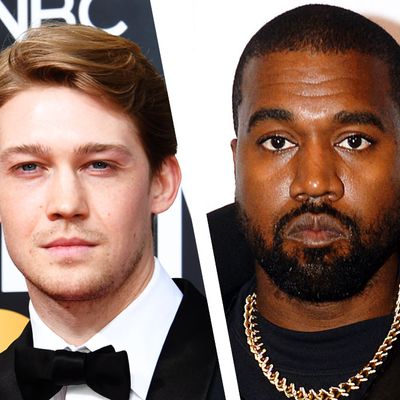
Taylor Swift’s new Netflix documentary, Miss Americana, cobbles together home videos, old news hits, tour clips, and new footage to give us an inside look into the life of the singer-songwriter. Or, rather, more of an inside look than we’ve ever gotten before. There are a number of poignant moments in the film that feel genuinely raw, like Swift talking about taking the stand in her sexual assault case and her eating disorder. (She mentions how looking at “bad” paparazzi photos would often trigger her to not eat.) We also get to see the behind-the-scenes of Swift’s decision to break her infamous silence on politics and endorse two Democratic candidates in Tennessee. (She fights with her father, who, for her safety, would prefer she stay silent; Bing Crosby and Bob Hope, he says, never got political.) And, best of all, we get to watch her songwriting process happen in real time.
But this is, after all, a Swift-approved endeavor. My colleague, Craig Jenkins, put it well in his review when he described the documentary as Swift inviting us into her narrative. A narrative she is, as ever, fully in control of. We are invited, but that doesn’t mean we get to see everything we want to. Or, in some cases, that we even deserve to see those things. Taylor Swift is a musician who has produced hit after hit after hit. We’re not entitled to her every personal detail. Still, the film has a few noticeable holes, some of which might have helped strengthen the final product.
The first is Joe Alwyn. Swift makes it very clear in the film that meeting her boyfriend — though she never actually names Alwyn — has been a big part of her finding a “normal” life, but that normalcy is reliant on putting up some long-needed walls. We see him only briefly, the back of his head as he hugs Swift following a Reputation tour performance. There’s another clip where Taylor is singing “Call It What You Want” on the floor strumming an acoustic guitar. She pauses mid-song and mouths the words, “I love you” to the person operating the camera, presumably Alwyn. His is one of the few absences that makes Miss Americana stronger, not weaker. We get to see a Swift who, after years of being forced to live the nightmare of having her every dating move chronicled worldwide, has decided to prioritize her privacy. She’s setting boundaries and telling — not asking — people to respect them.
But there are a few other omissions that feel more pronounced and calculated. The first is the absence of Swift’s much-touted female friendships. (Abigail Lucier, Swift’s childhood friend, makes an appearance for a glass of white wine — with ice — while the two discuss motherhood.) There’s a voiceover from the singer talking about how lonely she felt after winning her second Album of the Year for 1989. How she felt like she didn’t have anybody, other than her mother, to share the joy with. Swift’s “squad” during that era was ubiquitous and seemingly ever expanding. Yet in all of the doc, there’s only a brief clip of Swift and some friends on a red carpet. (It’s edited in among a number of clips from television hosts picking on Swift for, well, everything she does.) But that’s it. It feels strange given how much attention and care Swift famously puts into her friendships — lest we forget that infamous July 4th — that there is no mention of them. Friendships are messy! Friendships when you’re an international icon and many of your friends are too … even messier! That’s okay. But the decision to ignore their existence in favor of a clean narrative makes the story here feel incomplete.
The other glaring omission is Kanye-gate. Miss Americana shows the clip of the awards-show stage crash heard ‘round the world and goes deep on how much it hurt Swift, who was 20 at the time. (She talks about being on stage and not being able to tell, given the noise, that the audience was booing Kanye, not her.) But things get a little murkier in the drama that occurs in the following years. During the 2016 Grammys, Swift acted as though her inclusion in the lyrics of West’s “Famous” was a complete and hurtful surprise, a narrative we later learned wasn’t totally accurate. In the film, we hear the clip of the call where Swift told Kanye it was okay for him to reference her in “Famous.” (Swift later claimed she approved of the song but never gave her blessing to being called a “bitch.”) But the documentary punts on actually getting into the details here, failing to answer the question of what exactly happened and why Swift did what she did. The result leaves us feeling like Swift either doesn’t have the answer to that question or, more likely, doesn’t want to grapple with an answer that would present her in a less-than-rosy light.

